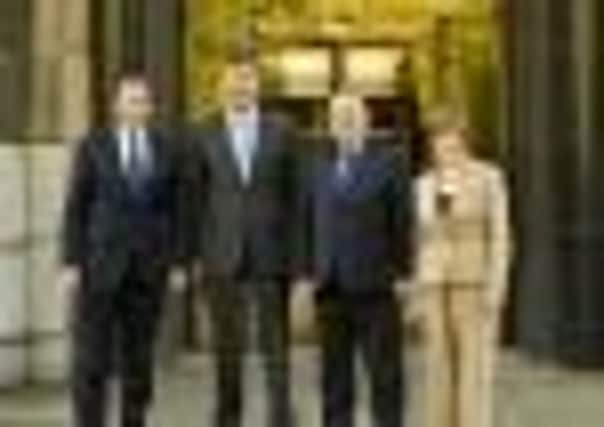Eddie Barnes: All is changed – the independence genie cannot go back in the bottle


All they do know, and agree on, is that from now on Scottish politics will never quite be the same again – no matter whether it is a Yes or a No in two years’ time.
If it is a yes, that is a statement of the obvious. Under the SNP government’s current proposals, after such a vote, there would be a frenetic year-and-a-half period where the terms of the split were negotiated, before an election in 2016 would put Scotland’s first independent parliament in place.
Advertisement
Hide AdAdvertisement
Hide AdMr Salmond was keen yesterday to focus attention on the last section of the “Edinburgh Agreement” which commits London and Edinburgh to the deal and to work “constructively” in the light of the outcome. This, he declared, meant that if there was a yes vote, there was now a commitment to ensuring a deal was done across the UK in good faith, beginning “the day after” the referendum.
Opinion widely differs on how realistic and achievable all this is. Scottish Government officials declare that while the forthcoming campaign will see the pro-UK camp raise questions over Europe, the currency, and financial regulations prior to the poll, they could be resolved “in the space of a few hours” afterwards.
Like Schroedinger’s cat – which is either dead or alive until someone lifts the lid – so the arrangements for after a Yes vote, under this view, are only doable the moment people make it so. And, given the sudden necessity to ensure that Scotland’s choice does not upset the economic and geo-political balance across the continent, it will be sorted.
However, this view is seen as optimistic by others, who point out that the interlinked nature of the UK economy cannot be neatly and quickly picked apart.
One of Mr Salmond’s former economic advisers, Professor John Kay, has estimated that there could be two years of negotiations, with agreements taking three years to implement.
Nor will it help, other finance experts add, that the division would be happening at a time when Scotland faces enormous fiscal challenges – like trying to write a constitution while falling from an aeroplane.
If it is a No, however, the idea that everything would return to life prior to the SNP’s victory in 2011 is mistaken. And it is notable that, in recent days, it is Nationalist figures who have begun painting a picture of what that post-No Scotland might look like. Their point is that the old days when Scottish secretaries and first ministers could use the threat of independence to exact a good price from Whitehall will now be as worrisome to London as a soggy pop gun.
And while a defeat in the referendum would be a blow, it is nowhere cast in stone that somehow Scots would decide they no longer wanted the SNP running the devolved government. The political demands for a more powerful Scottish Parliament would therefore continue.
Advertisement
Hide AdAdvertisement
Hide AdThe journey embarked on is a new one. But the likely destination can be tracked.
Messrs Cameron and Salmond didn’t know yesterday whether it will end in marriage or divorce. More likely is some civil partnership in between.